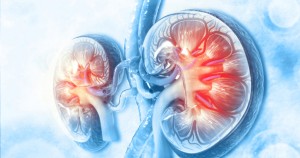New Delhi, Delhi Mar 4, 2021 (Issuewire.com) - The kidney performs the function of clearing out toxins from the body by filtering the blood and producing urine. They also help regulate a person’s blood pressure. In case the kidney loses its ability to perform this function properly, it is termed Chronic Kidney Disease or CKD.
CKD is a chronic condition since it develops over time and leads to the accumulation of toxins in your body. If the damage to the kidney continues, it can lead to kidney failure. In that case, a patient would require dialysis or undergo a transplant. The causes of kidney disease are several, and all of them require a different approach to treatment.
This condition is different from an acute kidney injury that develops due to a sudden injury to the kidney caused by any traumatic injury, sudden blood loss, or infection. CKD progresses over time and worsens if not treated properly.
Anyone can be diagnosed with CKD while the risk increases as you age. The risk factors that increase the chances of someone acquiring this disease are listed below-
Diabetes
The major cause of chronic kidney disease is diabetes. High blood sugar levels cause damage to various organs of the body, including kidneys. Diabetes patients are at a high risk of developing kidney disease because of this.
High Blood Pressure
High blood pressure or hypertension causes problems in the functioning of the kidneys. Uncontrolled blood pressure can be extremely harmful to various parts of your body, including the kidneys.
Kidney Stones
Kidney stones or tumors etc. can also lead to the development of CKD. Repeated urinary infections are also believed to cause chronic kidney disease.
Malformations
Any defect that is present at birth that restricts the normal functioning of kidneys can cause chronic kidney disease. This could be an obstructed urinary tract or any other congenital condition.
Glomerular Disease
Infection in the glomeruli of the kidney, which are its filtering units leads to glomerular disease, one of the major causes of kidney disease in people.
Family History
People with a family history of kidney diseases are more likely to develop this condition as well.
Age
The chances of a reduction of kidney function increase with age. Patients over the age of 60 are more likely to have CKD.
Drugs and Toxins
The use of any intravenous drug or medication for a long time can lead to kidney disease. Nonsteroidal anti-inflammatory drugs also have the same effect on your kidney.
Some other causes of kidney disease are:
- Conditions like HIV/AIDS, hepatitis B or C
- Lupus and other immune system diseases
- UTI within the kidneys
- Inherited diseases like polycystic kidney disease
- Previous damage to the kidney
- Heart diseases
- Obesity
Any physical condition that causes harm to the kidney can develop into chronic kidney disease if not treated on time. People who have these risk factors should get tested for CKD regularly. By maintaining a healthy weight and doing adequate physical activity, the risk of this disease can be minimized. People with diabetes and hypertension should eat a healthy diet and take proper medications to avoid any major damage to the kidney or heart.
Symptoms of CKD
Some of the common symptoms associated with chronic kidney disease are:
- Feeling tired all the time
- Anemia
- Loss of appetite
- Swollen ankles
- Frequent muscle cramps
- Losing sleep
- Having dry or itchy skin
- Shortness of breath
- Irregular heartbeat
People experiencing these symptoms who have some history of kidney damage, diabetes, high blood pressure of a family member with CKD should undergo the necessary blood and urine tests to find out of the kidney is functioning properly. Visit Know Treatment to read more articles.
Stages of CKD
CKD has been divided into five stages. How efficiently a person’s kidney is functioning is determined by its GFR or Glomerular Filtration Rate. The five stages of CKD based on the GFR levels of the person are-
- Stage one, where the GFR is more than 90 mL/min.
- Stage two, where the GFR is between 60 to 89 mL/min.
- Stage three A, where the GFR is between 45 to 59 mL/min. Stage three B, where the GFR is between 30 to 44 mL/min.
- Stage four, where the GFR is severely low. (15 to 29 mL/min)
- Stage five, with GFR levels below 15 mL/min.
The course of the treatment is decided based on the stage that the disease has progressed.
Being aware of the various kidney disease causes can help a person beware of the development of the condition in case any associated symptoms are visible. Patients who have the risk factors mentioned above require periodic testing to ensure that their kidneys are not at risk of CKD. If not treated properly, CKD can lead to complete failure of the kidney eventually. Reduce the risk of developing CKD by eating healthily and doing adequate physical activity.
Source - Sites.google.com
Media Contact
Vishal Mahour *****@gmail.com https://knowtreatment.com/









